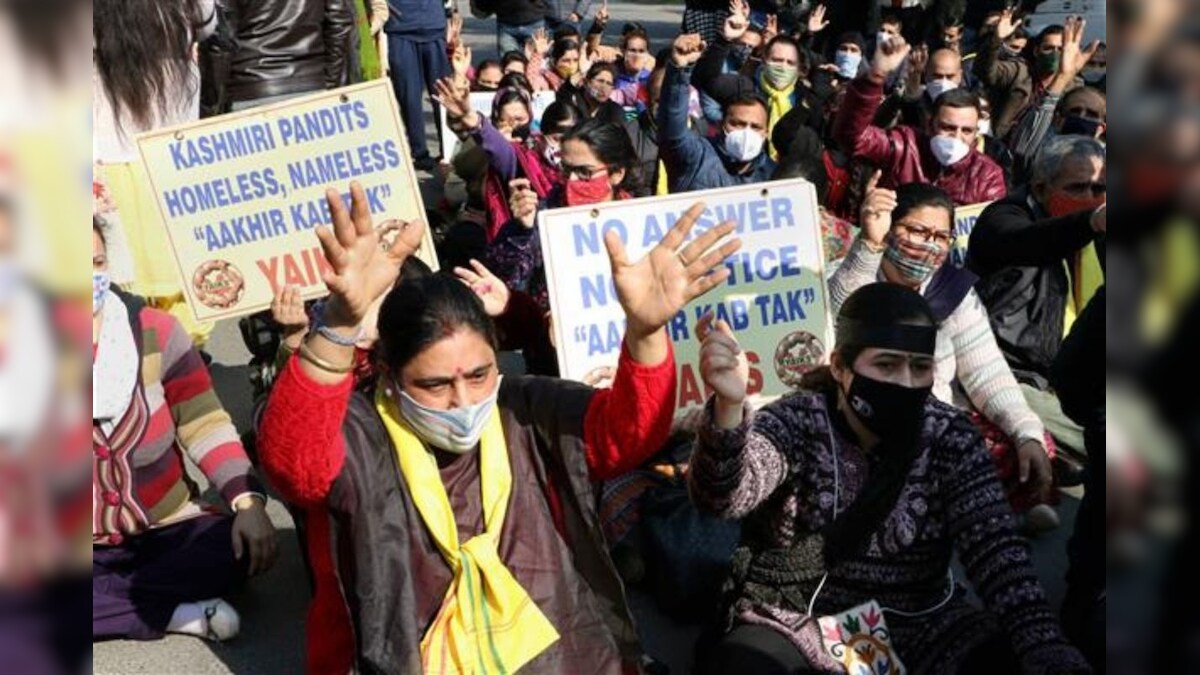


Conservative MP Bob Blackman has tabled an Early Day Motion in the House of Commons to mark the 35th anniversary of the coordinated attacks on the minority Hindu population of Kashmir valley. The motion condemns the atrocities committed against the Kashmiri Pandit community and calls on the UK and Indian governments to recognize and acknowledge the genocide. It also urges the UK government to commemorate January 19 as Kashmiri Pandit Exodus Day. The motion has no supporting signatures as of now, making the first six MPs supporting the motion its sponsors.
Kashmiri Pandit Exodus: A History of Trauma and Diaspora
The Kashmiri Pandit exodus refers to the displacement of the Kashmiri Pandit community from their ancestral homeland in the Kashmir Valley, following a series of coordinated attacks and persecution by Islamic militants in the late 1980s and early 1990s.
Background
Kashmiri Pandits, a Hindu minority in a predominantly Muslim Kashmir, have a rich history and cultural heritage in the region. However, tensions between the two communities escalated in the 1980s with the rise of separatist and militant movements seeking the independence of Kashmir from India.
In 1989, armed militants launched an offensive against Indian forces in Kashmir, triggering a violent campaign of intimidation and violence against Kashmiri Pandits. They were targeted for their religious identity, their role in supporting Indian rule, and their economic success.
Exodus and Persecution
In January 1990, a coordinated attack on the Pandit community forced thousands to flee their homes and seek refuge in safer areas. Over 200,000 Pandits were displaced within a few months, becoming one of the largest refugee populations in South Asia.
The militants engaged in systematic persecution, including killings, kidnappings, and extortion. Pandit homes and temples were vandalized and torched. The community's economic base was destroyed, and they were subjected to psychological and social abuse.
Aftermath
The exodus had a devastating impact on the Kashmiri Pandit community. Many lost their homes, livelihoods, and loved ones. The trauma of displacement and persecution continues to haunt them to this day.
While some Pandits have returned to Kashmir, the vast majority remain displaced in refugee camps in Jammu and other parts of India. They have struggled to rebuild their lives and regain their cultural identity.
International Recognition
The Kashmiri Pandit exodus has been widely condemned as an act of ethnic cleansing. In 2022, the United States Congress passed a resolution recognizing the exodus as genocide. Similar resolutions have been passed in the United Kingdom and other countries.
Top 5 FAQs:
When did the Kashmiri Pandit exodus take place?
Who was responsible for the attacks on Kashmiri Pandits?
How many Kashmiri Pandits were displaced?
Is the Kashmiri Pandit community still displaced?
Has there been any progress towards resolving the issue?

Indian Prime Minister Narendra Modi arrived in Johannesburg for the G20 Leaders’ Summit in South Africa, where he will engage in bilateral meetings and participate in the IBSA Summit. This marks the first time the G20 is being held in Africa, with the focus being on building solidarity, equality, and sustainability. PM Modi also expressed his excitement to meet with the Indian diaspora in South Africa, highlighting their strong presence in the country. He will present India's perspective on global issues, emphasizing the country's vision of 'Vasudhaiva Kutumbakam' (the world is one family).

As India commemorates its Independence Day in 2025, it's important to share the spirit and pride of this special day with the world. From inspiring morning messages to beautiful patriotic images, this collection offers the perfect words and visuals to show your love for India. Whether it's through WhatsApp, Instagram, or other social media platforms, spread the joy and gratitude for your country on this momentous day.

As jihadists in Mali successfully choke off fuel supplies to the capital, Bamako, tensions rise as the junta struggles to maintain their power. This also sheds light on Russia's promise to provide security support in the region, bringing into question the effectiveness of their aid in combating terrorism. With dwindling resources and increasing instability, the situation in Mali remains uncertain.

The Al Falah University in Dhouj, Haryana is under the spotlight as the Enforcement Directorate launches an investigation into possible terror funding and financial irregularities related to the November 10 Delhi blast. A show-cause notice has been issued to the university which was the hub of the terror module and is unaccredited. Further details reveal how central and state agencies are also reviewing potential money exchanges and individuals associated with the attack. Additionally, the university's website has been taken down for further scrutiny.

Visual ethnographic researcher Amardeep Singh delivers a presentation at the 9th Military Literature Festival, shedding light on the political, social, and military aspects of Maharaja Ranjit Singh's reign. He emphasizes the plural and secular nature of the Lahore Darbar, which included Sikhs, Muslims, Hindus, Dogras, and Europeans in its military and civil institutions. Singh also details the campaigns led by General Hari Singh Nalwa and General Zorawar Singh, highlighting their successes in fortifying Punjab's north-western frontier and expanding control to Ladakh, Baltistan, and western Tibet. This presentation challenges the narrow religious definition often associated with Ranjit Singh's rule.

During his state visit to Bhutan, PM Modi met with both Bhutan's present and former kings, reaffirming India's commitment to its neighbor's development journey. Discussions covered key areas such as energy, capacity-building, connectivity, and defence, while joint activities and agreements highlighted the strong cultural and spiritual bonds between the two countries. This visit further strengthened the unique and longstanding partnership between India and Bhutan, setting the stage for future collaboration and mutual prosperity.

A woman from Telangana, India received closure after 15 years of uncertainty when Bahrain officials informed her that her husband had passed away five years ago due to ill health. Due to certain procedures and formalities, his body cannot be repatriated to India, but Bahrain has offered to conduct the final rites according to traditional customs. This news comes as the latest development in the rising number of deaths of Indian workers in Gulf countries, with the Telangana government providing financial aid to the families of the deceased. Stay updated with the latest developments by following us on Instagram.

World leaders from Estonia, Israel, Japan, Sri Lanka, Spain, Maldives, Ireland, and Italy have extended their support and condolences to India after a blast near Delhi's Red Fort Metro Station left 12 people dead and 20 others injured. Investigators suspect that the blast may have been triggered by the mishandling of explosives by suspects, leading to a high alert in the national capital. The UK has also updated its travel advisory for British nationals in Delhi to follow the guidance of local authorities.

In the wake of a deadly suicide bombing that killed 12 people in Islamabad, Pakistan Prime Minister Shehbaz Sharif has accused India of being behind the attack. He also linked the bombing to another assault on a cadet college near the Afghan border. However, the Pakistani Taliban (TTP) has claimed responsibility for the bombing, stating it was a retaliation against Pakistan's "un-Islamic laws". Interior Minister Mohsin Naqvi has confirmed the death toll while urging for restraint in comments made on social media in response to the attack.

The Pakistani Taliban has taken responsibility for a deadly attack on a district court in Islamabad, in which 12 people were killed and 27 others injured. The attack, which occurred as international events were taking place in the capital, targeted officials and individuals who enforce laws deemed as un-Islamic by the militant group. Pakistani officials have promised to identify the attacker and the Taliban has threatened to carry out more attacks until Islamic Sharia law is implemented in the country. This attack serves as a wake-up call for Pakistan's negotiations with neighboring Afghanistan and has been deemed as a state of war by the country's Defence Minister.